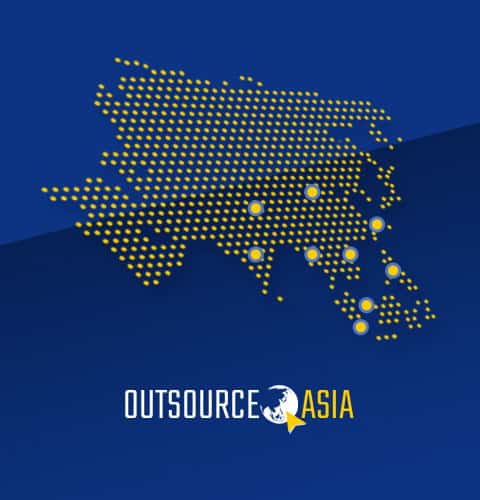
Navigating Cross-Cultural Collaboration: Tips for Successful Outsourcing Partnerships
Modern technology has allowed the outsourcing industry to grow by leaps and bounds. From only having the capability to outsource within their backyards, companies now have the opportunity to hire talents from all over the world. Outsourcing has made it possible for businesses to be more diverse and unique. These outsourced employees bring their colorful backgrounds to their teams and create a more diverse work environment.
However, certain challenges come with hiring talents from different countries, including navigating cross-cultural collaboration. Cultural differences and intercultural communication can prove to be difficult as companies may not be prepared to deal with them. Culture is deeply ingrained in everyone, so adjusting them for work settings can be hard.
The advantages of cross-cultural collaboration greatly outweigh the disadvantages. Because of this, companies must be armed with tips for successful outsourcing partnerships. Learn more about them below.
Cultural Compatibility In Outsourcing
Akin to a merger or acquisition, outsourcing results in two companies working together with the same agenda and shared responsibility. But when these two have clashing cultures, they simply can’t work together. Added to the complication of having geographical division, many partners may not see eye to eye due to their different upbringings.
Cultural compatibility plays a huge role in the success of cross-cultural collaborations. In outsourcing, a company must be culturally compatible with its outsourced partner. This doesn’t mean that they need to have the same background, but that these two entities must be able to comprehend and respect each other’s practices and beliefs. They must be able to have a strong partnership to work towards their shared goals.
Companies that can achieve cultural alignment or fitness can create a better work environment. A partner that can harmoniously work with you can lead your company to achieve success and longevity. It also lessens miscommunication, boosts productivity, and makes for a cohesive team.
How Can You Prepare Yourself for Cross-Cultural Collaboration
The idea behind cross-cultural collaborations is for companies to cast a wider net for talents. Rather than look in your backyard, you can search for hidden talents that are not commonly accessible for partnerships. These talents may be the key to unlocking your business’s potential for greatness. Once you find these talents, you must work hard to ensure that these collaborations run smoothly and result in a long-term partnership.
These are some tips that can help you out:
1. Get To Know Your Partner’s Culture
The first step to navigating cross-cultural collaborations is knowing your partner’s culture. Go beyond knowing their names and job descriptions — explore their culture, country, and background. Learn about where they come from, the business landscape, the history, and the current socioeconomic climate.
Having this knowledge will serve as a window to your partner’s mind. You’ll get to understand why they think the way they do. You can also form a stronger bond with them once they know that you took the opportunity to learn more about who they are. You may even use this to enter a longer partnership and eventually expand your business to their home country.
2. Know Local Laws
Employment laws serve as protection. These are laws created to prevent abuse and discrimination. It also aims to promote a better working environment, safer working conditions, and fairer wages. Every country and culture maintains different laws. While the general idea is similar, various traditions, holidays, and cultures may affect these laws. Without these, employees are left vulnerable to companies looking to take advantage of their skills.
As an outsourcing partner, you must be knowledgeable about their local laws. This not only protects your partner but your company as well. Knowing these laws may boost company morale as your partners know that you care for them enough to know and respect their country’s laws. You could strengthen your outsourcing partnership by prioritizing their well-being and rights.
3. Be Self-Aware
Being self-aware can go a long way when starting a cross-cultural collaboration. Self-awareness requires being humble and open to collaborating with other individuals. This can be challenging because you need to evaluate yourself and how you work with other people. You have to examine how you communicate and how you collaborate with people who aren’t from the same culture as you.
This also includes putting aside cultural complexities and sticking to one simple rule: treat others the way you want to be treated yourself. Don’t alienate someone just because you think they are different. Get to know them and listen to them. This ensures that you are always on the same page. It also shows that you are willing to listen and help when they need your assistance.
Tips For Successful Outsourcing Partnerships
Now that you are prepared to take on cross-cultural collaboration, you must forge and strengthen these partnerships. Gaining a valuable partnership can help you go a long way. This could be the difference between a failing business and a business that can be a strong global player.
Create successful outsourcing partnerships with the tips below.
4. Create Policies For Everyone
Once you have an outsourced partner, you must make inclusive policies. It would be smart to start with your existing policies and review what changes you could make. This is to remove any exclusive policies that can harm your partnership.
This is where your knowledge of their culture could be helpful. You would have an idea of what they need while they’re working with your company. You could start by giving time off on specific holidays, allowing leaves for their traditions, and incorporating their culture into their work.
5. Raise Awareness for Diversity
Finding ways to connect across countries doesn’t start and end with online meetings and random messages. Understanding cultural differences and raising awareness for diversity is critical in your outsourcing partnerships. Everyone in your company must be empowered to create and thrive in a diverse work environment.
Prioritizing diversity is an effect of cross-cultural collaborations. This is achieved by hiring the best talent, no matter where they’re from. Diversity strengthens partnerships and improves workflow. It can help you gather more ideas, improve cultural awareness, and helps put your company on the global market.
6. Recognize Cultural Differences
While we value teams and their work, we should remember that they are made up of individuals with different characters, attitudes, and beliefs. You should recognize that these talents have cultural differences that may or may not affect how they work and communicate.
Even before starting your partnership, it would be helpful if you could acknowledge and discuss these cultural differences. You can then list the possible challenges you may face and how you and your partner can overcome them. Having these in the open would assure your partners that you care and respect their culture.
7. Communicate With Your Partners
This doesn’t just apply to cross-cultural collaborations. It applies to all businesses hoping to create successful outsourcing partnerships. All teams benefit from open and effective communication. In the case of cross-cultural collaborations, this is even more crucial as you are collaborating with a global team.
Meetings and timely updates are essential to making things work. Set times or daily reminders to have your line of communication open. Utilize a variety of ways to communicate because one way may be efficient for other people but a different platform may not work the same with other partners. While face-to-face meetings could be difficult, the simple act of opening your cameras when doing online meetings could be helpful too!
8. Know How You Fit With Your Partners
In outsourcing, it’s essential to know the values you share with your partner. While you may not be from the same culture, you could still find a middle ground through your work ethic, business style, and behavior. These questions could also guide you:
- Are you familiar with their work history?
Knowing their work history can help you know how you can best work with them. You could utilize their talents best when you know what they can do. In addition, you could also know if there are possible clashes in values if they left a previous partner.
- Do you enjoy the same work environment?
This is to determine your work styles. Are they able to thrive in a quiet environment or do they need constant updates? How does their culture play into their work environment and how can you integrate it into yours if possible?
- Does your value align with your partner’s?
Having cultural compatibility is the key to successful cross-cultural collaborations in outsourcing. Having the same values regardless of your differences can smoothen out the rough edges you may have when starting your partnership. Your culture doesn’t have to match, but you must respect and understand each other for your partnership.
Navigating Cross-Cultural Collaboration
Outsourcing is one of the best ways to go global. You have the opportunity to gather talents from all over the globe and utilize their skills to grow your company. However, cross-cultural collaborations could be challenging to navigate without the proper tools. You must be able to explore and expose yourself to different cultures to build a strong outsourcing partnership. Furthermore, you need to respect and gain an understanding of each individual’s culture and how it can affect how one works.
Are you interested in forging a solid cross-cultural collaboration with your outsourcing partner? We would love to help you out!
Book a FREE appointment with Outsource Asia experts today.

